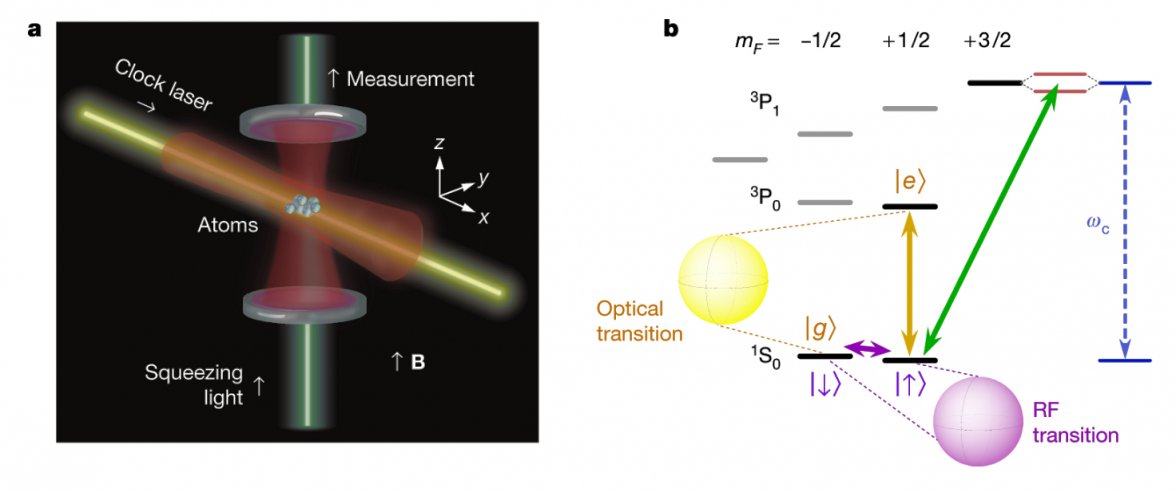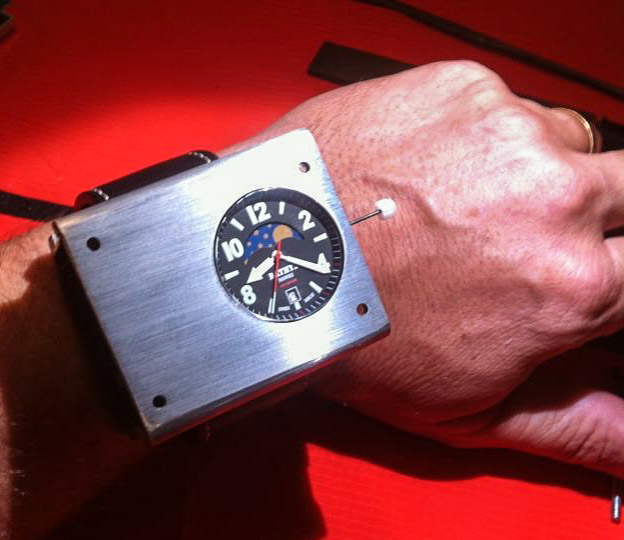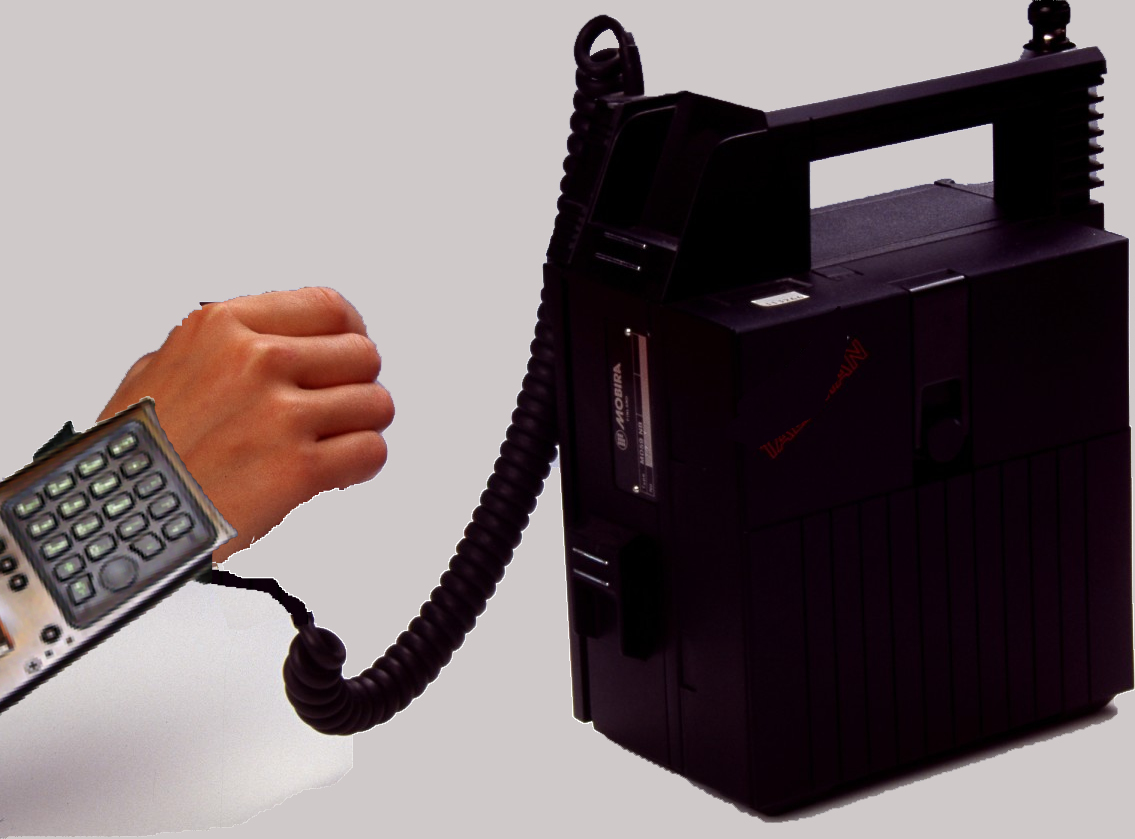Omegafanman
·The most accurate clock - using Quantum Entanglement ..Accuracy within a tenth of a second - over 14 billion years.
But just imagine those compounded service costs at 10-year intervals :0(
Currently if the world’s most precise clocks started ticking at the birth of the Universe, they would be out by a full half a second today. In theory this new design would be off by only 0.1 seconds …after 14 billion years….
In a similar way to how a grandfather clock uses the swinging of its pendulum to keep time, modern atomic clocks use lasers to measure the regular oscillations of clouds of atoms - the most stable periodic events that scientists can presently observe. Ideally, one would be able to use the motion of a single atom. Yet on atomic scales, the bizarre rules of quantum mechanics come into play - and measurements are subject to probabilities that must be averaged out to yield reliable data. 'When you increase the number of atoms, the average given by all these atoms goes toward something that gives the correct value,' explains paper author and physicist Simone Colombo of the Massachusetts Institute of Technology, or 'MIT'.
Current atomic clocks take measurements from thousands of ultra-cooled atoms - which are corralled into an optical 'trap' with lasers and probed by a different laser whose frequency is similar to that of the vibrations of the atoms being measured. However, even this approach is subject to a degree of quantum uncertainty.
Vladan Vuletić, a professor of physics at MIT Vuletić and his team, along with researchers from the University of Belgrade in Serbia, had an idea A decade ago, for how to overcome this limitation: Entangle the particles. Quantum entanglement - or "spooky action at a distance," as Albert Einstein famously called it - is the idea that the fates of tiny particles are linked to each other even if they're separated by long distances. So, by entangling the atoms that keep time, the scientists might be able to keep each pair or group of entangled atoms in the same state and thus oscillating at similar frequencies, thereby allowing the clock to overcome the standard quantum limit and measure time more precisely.
The MIT team have actually shown, some of this can be eliminated by turning to quantum entanglement, in which groups of atoms give correlated measurements. This, the researchers explained, means that the individual oscillations of the entangled atoms tighten up around a common frequency - thereby increasing the precision of the measurements taken by the clock.
In their new design, Dr Pedrozo-Peñafiel and colleagues entangled some 350 atoms of the rare Earth element ytterbium, which oscillates 100,000 times per second more often than caesium, the element employed in conventional atomic clocks.
This fact means that - if tracked accurately - the new clock can distinguish even smaller internals of time.
There's even speculation that so-called absolute constants in the world of physics, such as the speed of light or the charge of electrons, may change as the universe expands. And because these constants define the laws of physics that govern the energy levels in an atom, they may also change the measurement of time. So, it's possible that "the very essence of time changes as the universe expands."
@Omegafanman says I have found for years that time expands to fill whatever space time I have allowed to do things (especially things I don’t want to do :0)
https://www.nature.com/articles/s41586-020-3006-1?utm_medium=affiliate&utm_source=commission_junction&utm_campaign=3_nsn6445_deeplink_PID100032693&utm_content=deeplink
https://www.livescience.com/quantum-entanglement-atomic-clock.html
.
But just imagine those compounded service costs at 10-year intervals :0(
Currently if the world’s most precise clocks started ticking at the birth of the Universe, they would be out by a full half a second today. In theory this new design would be off by only 0.1 seconds …after 14 billion years….
In a similar way to how a grandfather clock uses the swinging of its pendulum to keep time, modern atomic clocks use lasers to measure the regular oscillations of clouds of atoms - the most stable periodic events that scientists can presently observe. Ideally, one would be able to use the motion of a single atom. Yet on atomic scales, the bizarre rules of quantum mechanics come into play - and measurements are subject to probabilities that must be averaged out to yield reliable data. 'When you increase the number of atoms, the average given by all these atoms goes toward something that gives the correct value,' explains paper author and physicist Simone Colombo of the Massachusetts Institute of Technology, or 'MIT'.
Current atomic clocks take measurements from thousands of ultra-cooled atoms - which are corralled into an optical 'trap' with lasers and probed by a different laser whose frequency is similar to that of the vibrations of the atoms being measured. However, even this approach is subject to a degree of quantum uncertainty.
Vladan Vuletić, a professor of physics at MIT Vuletić and his team, along with researchers from the University of Belgrade in Serbia, had an idea A decade ago, for how to overcome this limitation: Entangle the particles. Quantum entanglement - or "spooky action at a distance," as Albert Einstein famously called it - is the idea that the fates of tiny particles are linked to each other even if they're separated by long distances. So, by entangling the atoms that keep time, the scientists might be able to keep each pair or group of entangled atoms in the same state and thus oscillating at similar frequencies, thereby allowing the clock to overcome the standard quantum limit and measure time more precisely.
The MIT team have actually shown, some of this can be eliminated by turning to quantum entanglement, in which groups of atoms give correlated measurements. This, the researchers explained, means that the individual oscillations of the entangled atoms tighten up around a common frequency - thereby increasing the precision of the measurements taken by the clock.
In their new design, Dr Pedrozo-Peñafiel and colleagues entangled some 350 atoms of the rare Earth element ytterbium, which oscillates 100,000 times per second more often than caesium, the element employed in conventional atomic clocks.
This fact means that - if tracked accurately - the new clock can distinguish even smaller internals of time.
There's even speculation that so-called absolute constants in the world of physics, such as the speed of light or the charge of electrons, may change as the universe expands. And because these constants define the laws of physics that govern the energy levels in an atom, they may also change the measurement of time. So, it's possible that "the very essence of time changes as the universe expands."
@Omegafanman says I have found for years that time expands to fill whatever space time I have allowed to do things (especially things I don’t want to do :0)
https://www.nature.com/articles/s41586-020-3006-1?utm_medium=affiliate&utm_source=commission_junction&utm_campaign=3_nsn6445_deeplink_PID100032693&utm_content=deeplink
https://www.livescience.com/quantum-entanglement-atomic-clock.html
.
Edited:



